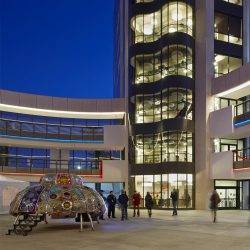To provide the best experiences, we use technologies like cookies to store and/or access device information. Consenting to these technologies will allow us to process data such as browsing behaviour or unique IDs on this site. Not consenting or withdrawing consent, may adversely affect certain features and functions.
The technical storage or access is strictly necessary for the legitimate purpose of enabling the use of a specific service explicitly requested by the subscriber or user, or for the sole purpose of carrying out the transmission of a communication over an electronic communications network.
The technical storage or access is necessary for the legitimate purpose of storing preferences that are not requested by the subscriber or user.
The technical storage or access that is used exclusively for statistical purposes.
The technical storage or access that is used exclusively for anonymous statistical purposes. Without a subpoena, voluntary compliance on the part of your Internet Service Provider, or additional records from a third party, information stored or retrieved for this purpose alone cannot usually be used to identify you.
The technical storage or access is required to create user profiles to send advertising, or to track the user on a website or across several websites for similar marketing purposes.
 In a recent survey, 95 percent of office workers said their physical work environment is important for their wellbeing and mental health. However, half believe their current working environment does not have a positive effect on their mental health, wellbeing, mood and productivity. The issue of employee wellbeing has risen up business’ agendas in recent years, and, as part of the drive for better mental health support for workers, companies are looking at ways in which the physical workplace can improve the mental health of their employees.
In a recent survey, 95 percent of office workers said their physical work environment is important for their wellbeing and mental health. However, half believe their current working environment does not have a positive effect on their mental health, wellbeing, mood and productivity. The issue of employee wellbeing has risen up business’ agendas in recent years, and, as part of the drive for better mental health support for workers, companies are looking at ways in which the physical workplace can improve the mental health of their employees.









 The government is being encouraged to implement mandatory ethnicity pay gap reporting when it announces the outcome of its ‘
The government is being encouraged to implement mandatory ethnicity pay gap reporting when it announces the outcome of its ‘






















March 6, 2019
It’s not a skills gap, it’s a diversity gap
by Agata Nowakowska • Comment, Workplace
As digital transformation impacts organisations in every industry, the workplace as we know it is evolving fast. For IT leaders, the accelerated rate of technological change means the pressure is on to deliver, manage and secure new platforms. But the wider ramifications of digitalisation projects are proving profound, leaving business executives facing a dilemma. (more…)